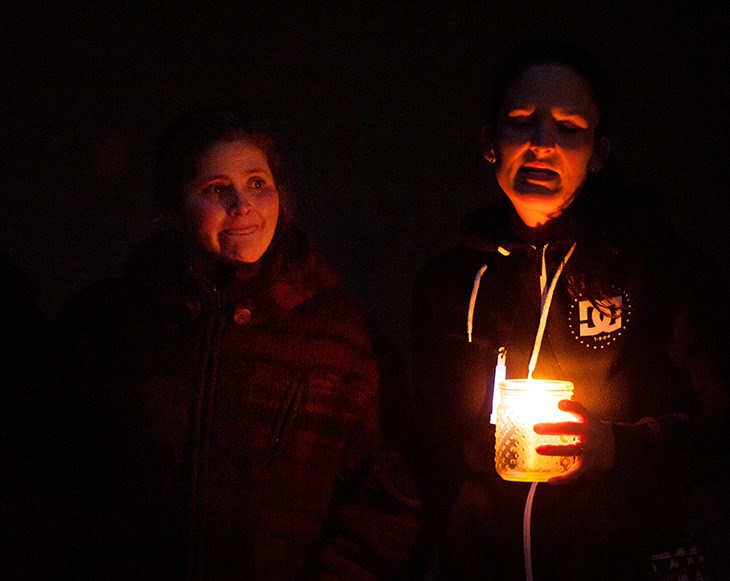The death of therapy dog Kaoru at the hands of a hunter may spark some meaningful changes in Squamish.
The dog’s owner, Valley Calderoni, and her supporters have launched two campaigns in the hopes of igniting changes that will prevent similar tragedies and support other therapy dogs.
A Squamish hunter shot and killed Kaoru while she was being walked with a pack of other dogs from the Canine Valley rehabilitation centre.
A Go Fund Me campaign was launched and raised $14,145, — well over its original $12,000 goal — in a week. Among other initiatives, the funds raised will support a hunting-free zone petition drive, a signage and education initiative, training a new generation of service dogs, as well as help with the setting up of a new expanded Canine Valley centre that is set to open soon, according to the site.
A petition on Change.org, “Create a No Shooting - No Hunting zone along highway 99 between Squamish and Whistler” addressed to the provincial Ministry of Forest, Lands and Natural Resource Operations.
The petition had 10,355 supporters as of Thursday, Sept. 28.
Mayor Patricia Heintzman, who is also an SLRD director, said the regional district has the authority to create no discharge of firearm zones and the province could adjust the B.C. Wildlife Act to change where hunting is allowed.
Perhaps the province needs to produce “much healthier buffer areas,” that are no-hunting areas, said Heintzman.
It is an idea worth considering, Heintzman added, given how popular many areas around Squamish are for recreationalists and how much risk there is for life-safety issues to arise.
Heintzman stressed the issue is not about trying to ban hunting. “It is just you can’t have hunting mixing with areas… with a lot of people and so we just have to be clear about where it can and can’t happen.”
Heintzman said local governments in Squamish and Whistler and the provincial government invite and encourage tourism so they have to ensure those who use the recreational amenities are safe.
“We all have to be looking at this comprehensively,” she said.
It is clear there are gun owners and hunters living in the Sea to Sky Corridor and there have been for generations.
Mike Morgan, president of the 75-year-old Squamish Valley Rod and Gun Club told The Chief the club has 750 members, the maximum it allows, and likely 75 per cent don’t hunt, he said.
“If you don’t have the facilities, a responsible spot for people to use them… how much are we keeping out of the bush — massive.”
The club has never had a firearms-related accident in its long history.
The club also provides a facility for courses that teach firearm safety such as the Canadian Firearms Safety Course as well as the Conservation Outdoor Recreation Education (C.O.R.E) hunter education.
The club is the only place in the Sea to Sky Corridor, before Pemberton, where these courses are available.
Morgan wouldn’t address the specific case of Kaoru because he said he didn’t know all the details, but said that he hopes the result of the tragedy is that all people using the rural areas around Squamish – hunters and recreationalists alike – become more aware of their surroundings. “In this time frame [hunting season]… you should be aware of your surroundings,” he said.
Morgan noted he has hunted with his own dogs for more than 20 years and would be “devastated,” were one shot.
Morgan and Heintzman both noted that they put vests on their dogs that make them easier to identify.
Morgan added with the recent rain, Sea to Sky Corridor forests will be getting very busy with people picking pine mushrooms so both hunters and the pickers need to be aware of each other.



